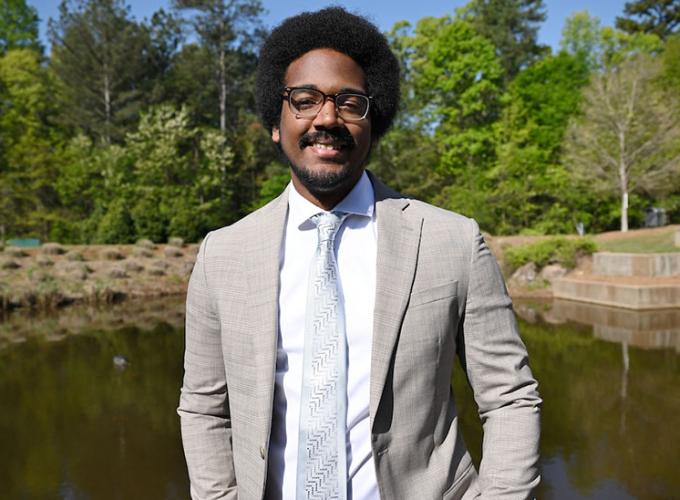The Spring 2025 Georgia Gwinnett College (GGC) Creativity, Research, Engagement, and the Arts Transform Everyone (CREATE) Symposium is one of the college’s premier events, highlighting the scholarly and creative work of students and faculty from this spring semester.
The Undergraduate Research, Scholarship and Creative Activities (URSCA) Committee organized the event to provide students and faculty with a platform to display their scholarly and creative work every semester.
Students from all over campus came together to highlight what happens when curiosity meets purpose.
Whether through art, research, writing or performance, the CREATE Symposium offered a space where ideas became impact and personal expression turned into public conversation.
The contributions from biology, chemistry, information technology and nursing continued to push the boundaries of innovation, science and care. Their efforts not only reflected academic excellence but also demonstrated a deep commitment to solving real-world challenges and improving lives.
GGC biochemistry major Nolberto Sanchez applied an advanced method of Raman Spectroscopy called Surface-Enhanced Raman Spectroscopy (SERS) to identify plastics.
“This project raises awareness about microplastics and helps people identify them. Corporations currently exercise excessive freedom in managing plastic waste, highlighting the urgent need for stricter regulation and increased research efforts to address this growing environmental issue,” said Sanchez. “Regular Raman Spectroscopy shines a laser onto a material and measures the scattered light to detect molecular vibrations. Although the signals are typically weak, these vibrations are highly specific to each type of plastic, making Raman Spectroscopy a powerful identification tool.”
Sanchez found inspiration for this project during his time working as a patient care technician.
“SERS enhances weak Raman signals, enabling detection of smaller microplastic particles and concentrations, crucial for addressing the growing plastic pollution threatening ecosystems, food and water. Our plastic waste is overwhelming yet remains largely unmonitored,” said Sanchez.
As microplastics increasingly threatens global ecosystems, Sanchez plans to continue his research after graduating in May to contribute to solutions for this escalating environmental crisis.
“I haven't solved the problem yet, but ruling out a wrong answer is just as valuable. It helps the next person start further ahead by building on past efforts,” he said.
The CREATE Symposium not only highlights the talent within GGC but also reminds us that every step in the pursuit of knowledge, big or small, moves us closer to meaningful change.
The next CREATE Symposium will be held in late fall 2025.
By Corey Mobley

